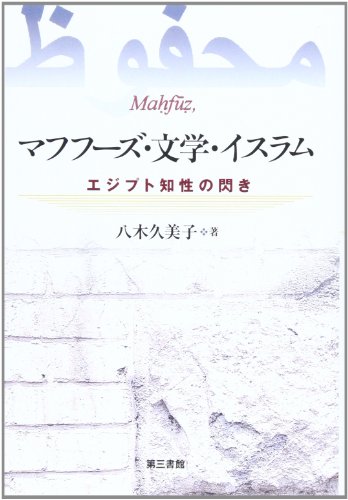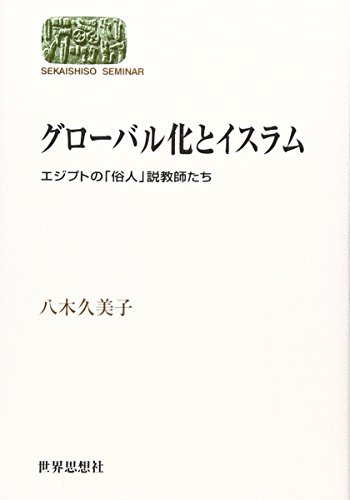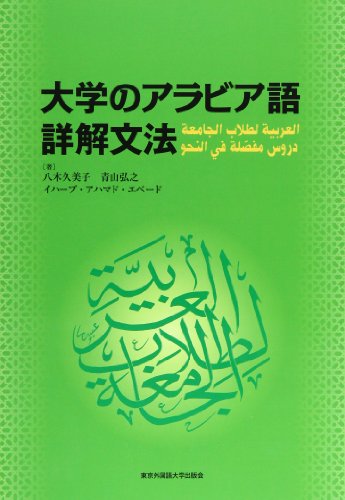4 0 0 0 マフフーズ・文学・イスラム : エジプト知性の閃き
3 0 0 0 IR イスラムの「俗人」スター説教師
- 著者
- 八木 久美子 ヤギ クミコ YAGI Kumiko
- 出版者
- 東京外国語大学
- 雑誌
- 東京外国語大学論集 (ISSN:04934342)
- 巻号頁・発行日
- no.77, pp.117-133, 2008
- 著者
- 八木 久美子
- 出版者
- 一般社団法人 日本オリエント学会
- 雑誌
- オリエント (ISSN:00305219)
- 巻号頁・発行日
- vol.37, no.2, pp.142-156, 1994 (Released:2010-03-12)
Naguib Mahfouz is a world-famous novelist of Egypt. He is widely known with his social novels set in modern Egypt. His first three novels, which are set in Pharaonic Egypt, have not been studied enough so far. They are works loyal to the so-called ‘Pharaonicism’ which characterized the national literature of Egypt in the twenties of this century. The national literature was itself a new trend to give a literary expression to ‘the territorial nationalism’, or the orientation toward a nation-state. Consequently, these three works of Mahfouz are not negligible for understanding the nature of ‘the territorial nationalism’ and why this movement rapidly receded into the background in the thirties.First of all, loyal to the Pharaonicism, Mahfouz presents the ideal image of Egypt, particularly in terms of the relationship between the rulers and the ruled, in Pharaonic Egypt. This ideal image is the very image of Egypt for which Mahfouz strives. At the same time, he never fails to covertly criticize the social corruption and injustice in the real society of Egypt. However, ‘Pharaonicism’ itself has its own limitations. As Pharaonic Egypt has never been symbolic of anything positive for Egyptians until its historical value was recognized by western scholars, it cannot contribute to the legitimatization of the new ideal image of Egypt.Secondly, ‘the territorial nationalism’ was supported mainly by western-educated intellectuals such as Mahfouz. The most serious problem for them in propagating their thought was how to communicate with the masses. The gap between these two groups of people was almost unbridgeable in those days. In these ‘Historical Works’ of Mahfouz, the masses are described as faceless and particularly as a group of people easily maneuvered by men of religion.These works of Mahfouz shed light on the weakness of the western-educated intellectuals calling for ‘the territorial nationalism’.
3 0 0 0 OA 塩尻和子編著『変革期イスラーム社会の宗教と紛争』
- 著者
- 八木 久美子
- 出版者
- 日本宗教学会
- 雑誌
- 宗教研究 (ISSN:03873293)
- 巻号頁・発行日
- vol.91, no.1, pp.149-154, 2017-06-30 (Released:2017-09-15)
3 0 0 0 OA ムハンマド風刺画問題についての一考察(第七部会,<特集>第六十五回学術大会紀要)
- 著者
- 八木 久美子
- 出版者
- 日本宗教学会
- 雑誌
- 宗教研究 (ISSN:03873293)
- 巻号頁・発行日
- vol.80, no.4, pp.1168-1169, 2007-03-30
2 0 0 0 グローバル化とイスラム : エジプトの「俗人」説教師たち
- 著者
- 八木 久美子
- 出版者
- 日本宗教学会
- 雑誌
- 宗教研究 (ISSN:03873293)
- 巻号頁・発行日
- vol.78, no.2, pp.541-564, 2004-09-30 (Released:2017-07-14)
イスラムと西洋近代という二分法が浸透するなかで、近代におけるイスラムはイスラム教徒のアイデンティティの要となりながら、それと同時に西洋近代の価値に支配された世界の歪みを正す宗教として、人類全体に向けた普遍的な役割を期待されてもいる。本論では、アラブ・イスラム世界の作家に焦点をあて、彼らが作品のなかで、「アメリカ」に代表される他者の価値に挑戦するものとしてイスラムをどのように描いたかを追う。彼らには現実のアメリカを描こうという意図はなく、宗教不在の社会の記号として「アメリカ」を否定し、公的な宗教の存在を必要不可欠と訴える。そして、そのような役割を果たすことができる宗教の典型としてイスラムを捉える。ただしその際、彼らの言うイスラムとは、宗教者によって支配される体系ではなく、信仰に基づいて生きる普通の人々がともに生きる人々とのつながりのなかで感じとり、蓄積してきた生活規範や倫理観であり、そうしたイスラムこそが、近代の普遍的な要請に応えられるとされている点が重要である。
1 0 0 0 IR 家族概念から見る近代国家のなかのイスラム ―20 世紀後半のエジプトを例に―
- 著者
- 八木 久美子 ヤギ クミコ YAGI Kumiko
- 出版者
- 東京外国語大学
- 雑誌
- 東京外国語大学論集 (Area and Culture Studies) (ISSN:24332690)
- 巻号頁・発行日
- no.99, pp.192-209, 2019-12-31
1 0 0 0 大学のアラビア語詳解文法
- 著者
- 八木久美子 青山弘之 イハーブ・アハマド・エベード著
- 出版者
- 東京外国語大学出版会
- 巻号頁・発行日
- 2013




